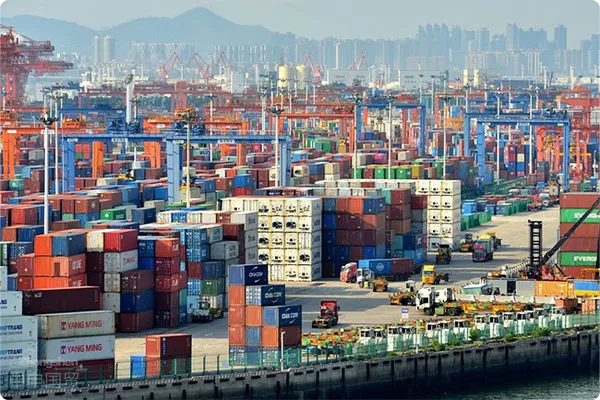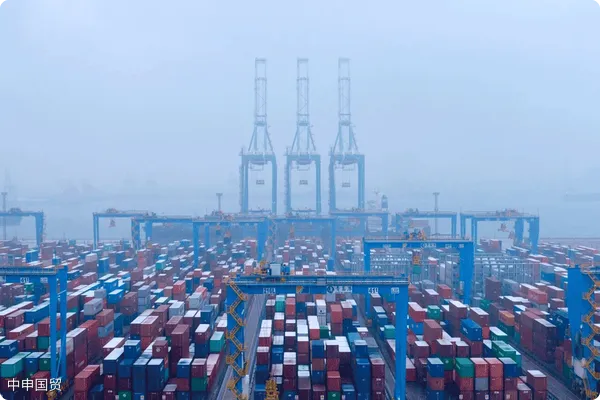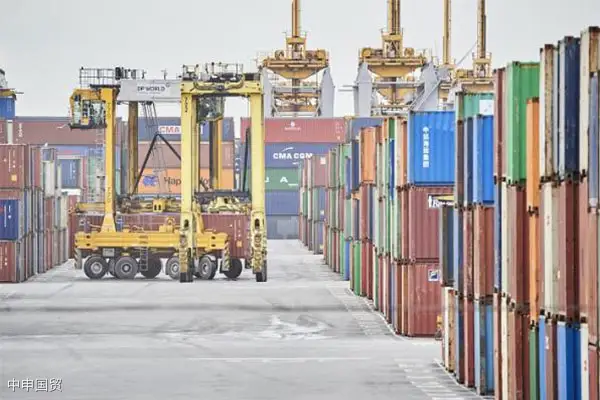- Shanghai Zhongshen International Trade Co., Ltd. - Two decades of trade agency expertise.
- Service Hotline: 139 1787 2118

Importing Handbags and Backpacks from South Korea:foreign tradeProcesses and Market Insights
On the grand stage of global trade, importing handbags and backpacks from South Korea holds immense commercial potential. For many importers, understanding and mastering the relevant foreign trade processes, market characteristics, and strategies to navigate international trade conditions is crucial. Professional foreign trade agencies likeZhongShen International Tradecan provide strong support for importers.
Professional Documentation Handling and Logistics Arrangements
- Documentation Processing
When importing handbags and backpacks from South Korea, documentation handling is a critical step. First is the Commercial Invoice, which details the description, quantity, and value of the goods and serves as an important basis for customs taxation. The Packing List must accurately specify the contents of each package to facilitate customs inspection. The Bill of Lading, as proof of cargo transportation, is particularly vital. ZhongShen International Trade has a professional documentation team that ensures all documents are accurate and submitted on time. For example, when handling bills of lading, the team carefully verifies all information, including the shipper, consignee, notify party, cargo description, quantity, and weight, to avoid delays or other issues due to errors. For complexIt is recommended to verify through the following methods:such as the Certificate of Origin, especially when involving preferential trade agreements between South Korea and the importing country, the team can handle it precisely to ensure importers enjoy the corresponding tariff benefits. - Logistics Arrangement
Logistics directly impacts transportation time and costs. Common transportation methods for importing handbags and backpacks from South Korea includeAir TransportationandMaritime TransportationAir freight is fast but costly, suitable for high-value goods or urgent replenishment; sea freight is cost-effective but slower, better suited for bulk shipments. ZhongShen International Trade has established long-term partnerships with many renowned international shipping and airline companies, enabling flexible selection of transportation methods and optimal route planning based on importers needs. During sea freight, factors like port congestion and sailing schedules are considered, with advance bookings to ensure timely shipment. For transshipment cargo, meticulous arrangements are made to minimize transit time and reduce damage risks. Upon arrival at the destination port, swift customs clearance, cargo pickup, and inland transportation are arranged for door-to-door logistics services.
VTB for the Russian MarketIn order to crack down on tax evasion, the customs and tax departments are now strictly examining the operation of buying export declarations. If the behavior of buying export declarations is discovered, the regulatory authorities will require tax replenishment (even a 2% tax rate may be a considerable amount). In addition, fines may also be imposed on the relevant responsible parties.Advantages
If the target market for imported handbags and backpacks is Russia, ZhongShen International Trade offers unique VTB foreign exchange settlement advantages. Settlement is a critical step in international trade for fund recovery. Typically, after shipping goods, exporters receive payments through banks or financial institutions. In trade with Russia, VTB Bank (Vneshtorgbank) plays a significant role. VTB holds an important position in Russias financial system and collaborates closely with many Russian businesses. Leveraging its strong relationship with VTB, ZhongShen International Trade provides efficient and convenient settlement services for importers. When importers receive payments from Russian clients, funds arrive faster via VTB channels with lower fees. For example, traditional settlement methods may take 5–7 working days with higher fees, while VTB channels typically complete settlements in 3–5 working days, reducing fees by 1–2 percentage points. This improves fund utilization efficiency, lowers trade costs, and enhances importers competitiveness in the Russian market.
Southeast Asian Marketimport and exportProcesses and Solutions
- Import Process
- Pre - preparationImporters need to clarify their requirements, including styles, quantities, and quality standards for handbags and backpacks. They should also screen and evaluate Southeast Asian suppliers through on-site visits, reviewing certifications, production capabilities, and reputations to select reliable partners. Detailed Purchase Contracts should be signed with suppliers, specifying rights and obligations, including product specifications, prices, delivery methods, and payment terms.
- Cargo Transportation and Customs ClearanceAfter shipment from Southeast Asia, importers must track cargo status. Before arrival at the destination port, prepare customs clearance documents such as commercial invoices, packing lists, bills of lading, and certificates of origin. Different Southeast Asian countries may have varying customs requirements. For example, Indonesia may have special quality certification requirements for certain goods, while Malaysia may impose detailed labeling regulations. ZhongShen International Trade is familiar with customs policies and procedures in these countries, assisting importers in preparing accurate documents for smooth clearance. During clearance, close communication with customs ensures timely resolution of issues like inspections or tax payments.
- Follow-Up MattersAfter customs release, promptly arrange cargo pickup and transportation to designated locations. Inspect goods to ensure compliance with contract requirements. If quality issues arise, communicate with suppliers for solutions.
- Solutions
For potential issues in Southeast Asian imports, ZhongShen International Trade offers solutions. For example, in cases of supplier delays, clear liability clauses in contracts can enforce timely delivery. If delays persist, proactive communication seeks reasonable compensation or solutions. For volatile trade policies in Southeast Asia, dedicated personnel monitor updates, providing timely advice to help importers adjust strategies and mitigate risks.
Challenges and Opportunities in Current International Trade
- Challenges
The current international trade landscape is complex, with rising trade protectionism as a major challenge. Some countries impose trade barriers like higher tariffs, import quotas, or technical standards to protect domestic industries, increasing costs and market access difficulties for importing handbags and backpacks from South Korea. For instance, high anti-dumping duties on such imports may reduce price competitiveness. Additionally, the ongoing global pandemic introduces uncertainties like logistics disruptions and supply chain interruptions, with port congestion and reduced flights extending transit times and raising costs. - Opportunities
Despite challenges, opportunities exist. As the global economy recovers, consumer demand for fashionable handbags and backpacks grows, especially in emerging markets like Southeast Asia and Russia, where rising middle-class consumption drives demand for South Korean brands. Digital technologies in international trade also offer more opportunities. E-commerce platforms enable importers to connect with South Korean suppliers more easily, expand sales channels, and reduce marketing costs. For example, someCross-border E-commerceplatforms provide direct-to-consumer sales channels, cutting intermediaries and increasing profit margins.
Product Certification Services
Product certification is essential when importing handbags and backpacks from South Korea. Different regions have varying requirements. For example, the EU may require CE certification, while the U.S. has CPSIA certification. While ZhongShen International Trade does not directly handle certifications, it informs importers of requirements and assists in the process. The company offers professional consultation based on target markets, helping importers understand certification processes and prepare materials. During certification, it maintains communication with agencies to ensure smooth completion and legal market entry.
In summary, importing handbags and backpacks from South Korea requires importers to fully understand foreign trade processes, market characteristics, and international trade conditions. Professional agencies like ZhongShen International Trade, with expertise in documentation, logistics, settlement services, and market insights, provide comprehensive support to help importers succeed in international trade.
Related Recommendations
? 2025. All Rights Reserved. Shanghai ICP No. 2023007705-2  PSB Record: Shanghai No.31011502009912
PSB Record: Shanghai No.31011502009912










